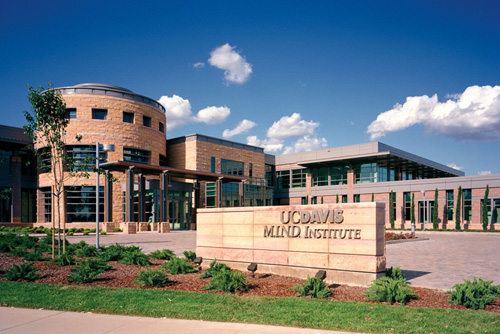Medical Genetics and Genomics Residency
Clinical Training - Laboratory Rotations
UC Davis Molecular Diagnostics Clinical Laboratory Rotation
Each resident spends 2 weeks learning molecular diagnostics under the supervision of Dr. Jeff Gregg in the Clinical Molecular Diagnostic Laboratory at UC Davis Medical Center and with Dr. Flora Tassone of the UC Davis MIND Institute Fragile X laboratory. While in the laboratory, the resident learns the technology associated with studies performed, including polymerase chain reaction, reverse dot blot, Southern blot, and restriction fragment length polymorphism analysis. The residents assist the Directors in interpreting abnormal results and conveying the results to referring physicians. The laboratory directors supervise all procedures. The residents have hands-on experience with procedures and participate in all clinical and teaching didactics with the Pathology residents, as well as attend Pathology Grand Rounds while on this rotation.
ARUP Biochemical Laboratory Rotation
In the first year, each of the residents spends 2 weeks in the Clinical Biochemical Genetics Laboratory at ARUP, the laboratory that UC Davis uses for all its biochemical (blood, urine) testing. The Director of the rotation is Dr. Marzia Pasquali, Section Chief, Biochemical Genetics and Medical Director, Biochemical Genetics and Newborn Screening. While in the laboratory, the resident learns the technology associated with the assays, the indications for the tests, normal values, and the meaning of abnormal results. They also assist the Laboratory Director in interpreting abnormal results and conveying results to referring physicians. Dr. Marzia Pasquali directly supervises all procedures. The residents have hands on experience with procedures and participate in all clinical and teaching conferences while in the laboratory. Additionally, the resident will attend all didactic lectures for learners, which take place on Wednesday during this rotation, as well as formally present an interesting case during their final case review session in the rotation. Formal case review takes place on Fridays.
ARUP Cytogenetics and Genomic Microarray Rotation
Each of the residents spends 2 weeks in the Cytogenetics and Genomic Microarray Laboratory at ARUP, the laboratory that UC Davis uses for cytogenetic testing. The Director of the rotation is Dr. Bo Hong. While in the laboratory, the resident learns all stages of tissue culture and cytogenetic analyses. The resident helps perform molecular cytogenetics analysis of specimens, including rapid karyotypes, fluorescence in situ hybridization, and chromosomal microarray. The resident assists the Director in interpreting abnormal results and conveying results to referring physicians. Dr. Bo Hong supervises all procedures. The residents have hands-on experience with procedures and will attend all didactic lectures for learners during this rotation, as well as formally present an interesting case during their final didactic session in the rotation. Didactics take place every Wednesday and formal case review takes place every Friday. The resident will learn about software analysis and interpreting variants of unknown significance.
MIND Institute

The UC Davis MIND Institute is a collaborative international research center, committed to the awareness, understanding, prevention, and treatment of the challenges associated with neurodevelopmental disabilities.
Founded in 1998 by families of children with autism, they envisioned experts from disciplines related to brain development to work towards finding and developing treatments to reduce the challenges and improve the quality of life for individuals with neurodevelopmental disabilities and their families.
